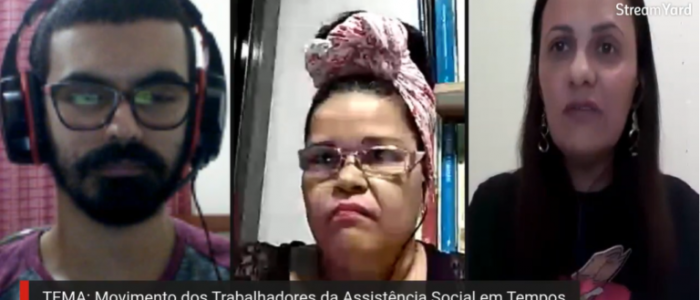O Centro de Educação e Assessoramento Popular apresenta nesta live o estudo “O impacto da Covid-19 na ação dos movimentos sociais populares”. O material é fruto de entrevistas realizadas com dirigentes de 23 organizações brasileiras com o objetivo de compreender de que forma a pandemia do coronavírus impacta nas ações politico-organizativa e político-educativa dos movimentos sociais. Acesse aqui.
- Tipos de mobilização: Lives sobre Ativismo












